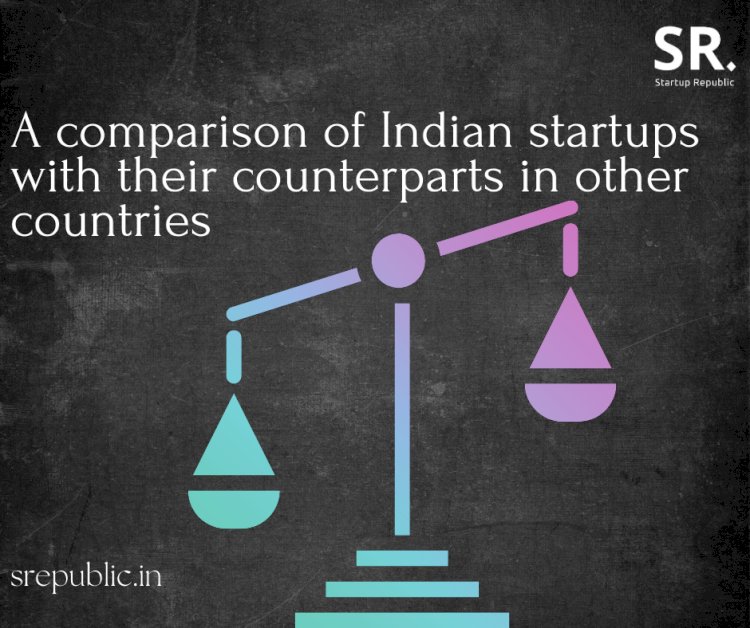A comparison of Indian startups with their counterparts in other countries
"India's startup ecosystem has come a long way in the past decade, with over 50,000 startups and growing investor interest. But how do Indian startups compare to their counterparts from other countries? Let's take a closer look at the strengths and weaknesses of Indian startups in comparison to startups from the US, China, and Europe."

In recent years, India has emerged as a startup hotspot, with a vibrant ecosystem of entrepreneurs, investors, and incubators. According to a report by NASSCOM, India is home to over 50,000 startups, making it the third-largest startup ecosystem in the world after the US and China. However, how do Indian startups compare to their counterparts in other countries?
To answer this question, let's take a closer look at the strengths and weaknesses of Indian startups in comparison to startups from other countries.
Strengths of Indian Startups
Low-Cost Innovation: One of the biggest strengths of Indian startups is their ability to innovate at a low cost. With limited resources, Indian entrepreneurs have learned to be creative and come up with innovative solutions that are affordable for the masses.
Large Domestic Market: India has a massive domestic market, with a population of over 1.3 billion people. This provides a huge opportunity for Indian startups to scale up and become successful without having to expand globally.
Growing Investor Interest: The Indian startup ecosystem has seen a surge in investor interest in recent years, with both domestic and international investors showing interest in Indian startups. This has helped Indian startups to raise funding and scale up quickly.
Weaknesses of Indian Startups
Lack of Infrastructure: One of the major challenges faced by Indian startups is the lack of adequate infrastructure. This includes basic amenities like good roads, reliable power supply, and high-speed internet, which are critical for the growth of startups.
Limited Access to Talent: Despite having a large pool of talent, Indian startups often struggle to find the right talent due to the limited availability of skilled professionals.
Regulatory Hurdles: Indian startups have to navigate a complex regulatory environment, which can be a major hurdle for their growth. This includes issues related to taxation, intellectual property, and government policies.
Comparison with Startups from Other Countries
US Startups: The US has the largest startup ecosystem in the world, with a strong culture of entrepreneurship and access to a large pool of capital. However, the cost of doing business in the US is high, which can be a challenge for startups.
Chinese Startups: China has emerged as a major player in the global startup ecosystem, with a focus on tech and innovation. However, the Chinese government's strict regulatory environment can be a major challenge for startups.
European Startups: Europe has a thriving startup ecosystem, with a focus on sustainability and social impact. However, the lack of a single market and language barriers can be a challenge for startups looking to expand across the continent.
Final Thoughts:
Indian startups have come a long way in the past decade, with many success stories to their credit. While there are still some challenges that need to be addressed, the Indian startup ecosystem has the potential to become a global powerhouse. By leveraging their strengths and addressing their weaknesses, Indian startups can continue to grow and compete with their counterparts from other countries.
























